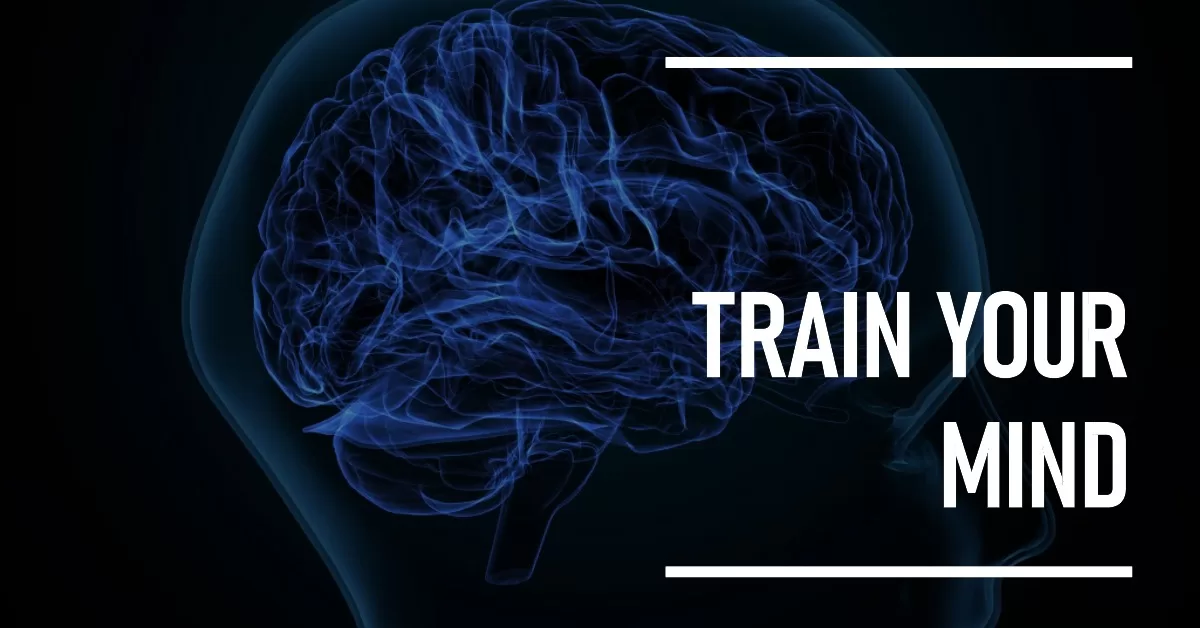Mental conditioning is a psychological phenomenon that has a significant influence on our daily lives and performance. It refers to the mental processes that shape our behavior, attitude, and thought patterns. This includes conscious as well as unconscious processes such as beliefs, assumptions, and expectations. By understanding how mental conditioning works, we can learn to take control of our thoughts and emotions in order to increase our productivity, creativity, and wellbeing. In this article, we will explore how mental conditioning affects our daily life and performance by analyzing different aspects such as positive mental conditioning, overcoming negative mental conditioning, recognizing triggers, motivation, and creativity.
Table of Contents
- 1 What is Mental Conditioning?
- 2 How Mental Conditioning Impacts Performance?
- 3 Building Positive Mental Conditioning
- 4 Overcoming Negative Mental Conditioning
- 5 Recognizing Your Triggers
- 6 Mental Conditioning and Motivation
- 7 Mental Conditioning and Creativity
- 8 Improving Your Mental Conditioning with Physical Exercise
- 9 Conclusion
What is Mental Conditioning?
Mental conditioning is the process by which an individual’s thoughts, beliefs, and attitudes are formed and shaped over time. This process involves the internalization of societal norms, values, customs, and experiences that shape our views and ultimately affect our behavior. It can be seen as a form of self-programming that allows us to build on existing knowledge in order to better understand ourselves and the world around us. Mental conditioning is an important factor in how we interpret events in life, including success or failure. The way we view these events will influence our reactions to them and can ultimately lead to either positive or negative outcomes depending on how we react.
Mental conditioning also impacts how we approach tasks in our daily lives. How we perceive difficult situations will often dictate whether or not we attempt to tackle them head-on or shy away from them altogether. Our attitude toward any given task can have a significant impact on its outcome; if one has a positive outlook then they are more likely to succeed than those with a negative mindset. Furthermore, if one believes that they cannot complete a task then this belief may hinder their ability to do so even further as it becomes difficult for them to remain motivated throughout the entire duration of said task due to a lack of confidence in their own abilities.
The effects of mental conditioning extend beyond just performance-related aspects; it can also manifest itself through emotions such as fear, anxiety, or happiness which may be triggered by certain stimuli within one’s environment. These emotions act as powerful motivators influencing whether someone takes action or remains passive in certain scenarios; understanding how these emotions work is key to being able to control them effectively rather than allowing them to take over completely without conscious awareness. Additionally, being able to identify triggers for these emotional responses helps individuals understand why they feel certain ways when exposed to specific stimuli which may help them learn effective coping mechanisms for dealing with future instances where similar feelings arise again in the future thus aiding personal growth and development overall.
Our mental conditionings can provide comfort during trying times but can also become obstacles when attempting something new; understanding both the positives and negatives associated with mental conditioning is essential for achieving balance within one’s life while still having room for personal growth along the way. By working toward building healthy mental habits such as developing strong problem-solving skills and staying focused on long-term goals despite shortfalls encountered along the path, individuals will be able to set themselves up for success no matter what life throws at them because they know they have control over their own destiny even if things don’t always go according to plan initially.
How Mental Conditioning Impacts Performance?
Through the development of conscious and subconscious cognitive processes, mental conditioning may affect an individual’s performance. Mental conditioning can be considered a set of psychological techniques that are used to create or modify one’s thoughts, beliefs, and behaviors in order to improve their performance.
The impact of mental conditioning on performance is evident in several ways:
- Increased motivation
- Improved focus
- Enhanced mental clarity
- Greater self-awareness
Through dedicated practice and effort, individuals can gain greater control over their own thoughts and ideas through the process of mental conditioning. This increased level of self-control can lead to improved concentration, better problem-solving skills, as well as improved overall decision-making abilities. It can also help in developing a positive attitude toward life events which will result in higher levels of satisfaction with oneself and ultimately lead to enhanced performance outcomes.
Mental conditioning can also have a profound effect on physical health by helping individuals become more aware of how they use their bodies during activities such as exercise or sports. By understanding one’s capabilities, limitations, strengths, and weaknesses an individual is able to adjust their approach accordingly for better results. It also helps them create healthier habits such as eating right or getting adequate sleep which further enhances their overall wellbeing leading to long-term success.
Overall, mental conditioning has the potential to influence an individual’s performance significantly if practiced correctly with dedication over time; resulting in improved motivation levels and sharper cognitive abilities while simultaneously promoting physical health benefits too.
Building Positive Mental Conditioning
Developing self-awareness, creating positive affirmations, and practicing gratitude are three key points to consider when discussing building positive mental conditioning. Self-awareness involves understanding how one’s thoughts, emotions, and behaviors impact performance. Positive affirmations involve using self-statements that can enhance confidence and motivation. Practicing gratitude is also an essential part of developing a healthy mindset as it helps individuals recognize what they have rather than only focusing on what they lack or want.
Develop Self-Awareness
Self-awareness is essential for understanding and optimizing one’s personal potential. Having a higher level of self-awareness means having an understanding of one’s thoughts, feelings, and motivations that drive their behavior. This knowledge can help to assess the effectiveness of current behaviors and provide insight into how to achieve greater success in life.
Self-awareness has several components:
- Mental awareness: Being aware of one’s thoughts, including automatic thoughts, beliefs, and values that shape our mental state
- Cognitive Awareness: Understanding how cognitive processes such as problem solving, decision making, memory recall, etc., affect our mental state
- Emotional Awareness: Recognising emotions in oneself and others accurately without judgment or bias
- Body Awareness: Knowing what your body is telling you through physical sensations such as hunger or fatigue which can be used to improve performance or control impulsive behavior
- Social Awareness: Being aware of subtle social cues which are important for understanding relationships with people around us and maneuvering through different social situations successfully
Having a high degree of self-awareness can help individuals recognize their strengths and weaknesses in order to build resilience when facing challenges while being better equipped to make decisions more quickly by developing inner wisdom about themselves over time.
Create Positive Affirmations
The practice of creating positive affirmations can be a powerful tool for cultivating self-awareness and developing personal growth. Positive affirmations are statements that an individual says to themselves in order to improve their mental attitude, confidence, and motivation. By repeating positive affirmations consistently over time, individuals can change the way they think about themselves and their lives.
One way to create effective affirmations is by using a 3-column and 5-row table. For each row in the first column, list a negative belief or thought, such as “I am not good enough” or “I cannot do this”. Then in the second column, write down its opposite statement (or reframe it), such as “I am capable of anything I put my mind to” or “I am confident in my ability”. Lastly, for the third column, use evidence from your own experiences or research to support these new beliefs; this will help make them more believable and meaningful. Practicing positive affirmations with this type of structure can help lead to greater self-awareness and improved performance in everyday life.
Practice Gratitude
Practicing gratitude can be a powerful tool for cultivating self-understanding and personal growth. It involves appreciating the positive things in life, taking stock of what one has, and recognizing the good that is all around. Taking time to express thankfulness helps to foster greater emotional wellbeing and satisfaction with life. Gratitude can also lead to more positive relationships and increased feelings of connectedness with others. This sense of connection can help people feel more engaged in their daily lives.
Gratitude is not only beneficial on an individual level but has been found to have far-reaching implications for mental conditioning as well. Practicing gratitude has been linked to improved physical health, better sleep patterns, higher levels of energy, increased productivity, improved problem-solving abilities, increased confidence and self-esteem, enhanced creativity, improved impulse control, and decision-making skills – all of which are essential components influencing daily life performance. Regular practice of gratitude therefore fosters a healthier outlook on life and increases one’s capacity for success both professionally and personally.
Overcoming Negative Mental Conditioning

By recognizing and actively challenging detrimental thought patterns, it is possible to create positive mental habits that can lead to improved outcomes. Mental conditioning refers to the set of beliefs, attitudes, and behaviors that are developed over time as a result of our experiences and interactions with others. Negative mental conditioning can manifest in various ways including negative self-talk, low self-esteem, poor decision making, or difficulties in managing stress. It is important to be aware of these negative thoughts and patterns in order to begin the process of overcoming them.
The first step toward overcoming negative mental conditioning is becoming mindful of one’s inner dialogue. By being aware of one’s own thoughts, individuals can begin to recognize when their thinking patterns are unhelpful or even detrimental. Once these patterns have been identified they can be challenged by reflecting upon any underlying assumptions or biases they may contain. This process helps individuals gain clarity on how their thinking affects their behavior and emotions before those behaviors manifest into actionable consequences.
The second step involves replacing unhealthy thought processes with more helpful ones. This could involve reframing situations in a more positive light or finding solutions rather than dwelling on problems. Creating positive affirmations (as described before) is an effective technique for instilling confidence and resilience when faced with difficult moments or obstacles. Engaging in activities such as regular exercise or meditation can help foster feelings of peace and wellbeing while strengthening the ability to focus on tasks at hand without distraction from intrusive thoughts or emotions.
Finally, it is important for individuals to seek out support if necessary either through friends, family members, counselors/therapists, etc. Social connection has been shown to reduce the risk for depression as well as improve overall physical health due to its potential healing powers; therefore having someone there who believes in you can be essential during times when one’s self-confidence may need a boost due to past experiences influencing present actions/decisions negatively. By taking small steps toward improving mental health each day through mindful awareness combined with positive reinforcement techniques it is possible for anyone to take control back over their life no matter what kind of challenges they may have experienced in the past due to detrimental mental conditioning practices.
Recognizing Your Triggers
Recognizing the thoughts, emotions, and behaviors that trigger negative mental patterns is an essential step toward reclaiming control of one’s life. Being aware of what triggers a person’s negative mental conditioning can help them identify when they are falling into a self-defeating pattern. This awareness allows one to take proactive steps to shift their focus from negative thought patterns toward more positive ones.
In order to recognize triggers for negative mental conditioning, it is important to first understand the connection between the external environment and how this affects internal psychological processes. It is also important to identify any past experiences that may have triggered similar emotions or thinking styles in the past. By being able to trace back these connections, individuals will be better equipped to recognize patterns associated with their own particular triggers for negative mental conditioning.
One approach that can be used when attempting to recognize triggers for negative mental conditioning is journaling. Keeping a daily record of thoughts, feelings, and behaviors can provide vital information about what situations tend to lead one down a path of self-defeating thoughts and habits. By recognizing these patterns in advance, individuals can proactively take steps before they become overwhelmed by them. Reflecting on these entries over time can provide insight into any underlying causes or issues that may be contributing factors in triggering these responses in the first place.
Examining one’s behavior through various methods such as cognitive behavioral therapy (CBT) or mindfulness techniques can also be beneficial in identifying potential triggers for negative mental conditioning. Using this type of reflection provides an opportunity for individuals to gain insight into how they respond emotionally and psychologically under different conditions and environments. Taking this knowledge forward allows individuals greater control over their reactions and helps them avoid being taken off-guard by unanticipated events or stimuli throughout their day-to-day lives which could potentially lead down a path of destructive habits or thought patterns if left unchecked.
Mental Conditioning and Motivation
Mental conditioning is an important factor in developing motivation and self-discipline. Developing a growth mindset, rather than a fixed mindset, allows individuals to recognize their own capabilities and potential for further development. Self-discipline is also essential in order to make progress toward set goals; by understanding the triggers that influence decision making, it is possible to develop strategies for overcoming obstacles and increasing motivation.
Developing a Growth Mindset
Adopting a growth mindset can lead to improved productivity and success in various aspects of life. A growth mindset is an outlook that emphasizes the importance of effort, persistence, and resilience over innate talent or ability. People with such a mindset believe that through hard work, dedication, and practice anyone can learn new skills and abilities. This type of outlook allows individuals to view mistakes as learning opportunities rather than failures, enabling them to approach challenges with optimism and enthusiasm instead of fear or anxiety.
A growth mindset also helps people appreciate the process rather than focusing only on the end result. It enables individuals to focus on progress instead of perfectionism – by taking smaller steps they are more likely to stick with their goals for longer periods of time without getting discouraged by setbacks or obstacles. Those who possess a growth-oriented attitude will typically be more open-minded about trying out different strategies when faced with difficult tasks, which can improve thinking skills and help develop creative problem-solving techniques. In short, developing a growth mindset helps people become well-equipped to handle all kinds of situations in life while also helping them achieve greater success in whatever they undertake.
Boost Self-Discipline
Developing self-discipline can be a key factor in achieving success and reaching personal goals. Self-discipline is the ability to control one’s emotions, behavior, and desires in order to achieve a desired goal or outcome. It involves setting clear boundaries for oneself, such as setting limits on how much time is spent watching television or engaging in other activities that do not contribute to success. When an individual has self-discipline, they will be better able to focus on tasks without becoming distracted by irrelevant matters or procrastinating. Furthermore, individuals with strong self-discipline are more likely to stick with difficult projects until completion and have greater perseverance when faced with challenging obstacles. Self-discipline helps individuals stay motivated even when progress may seem slow or tedious; it also helps them plan ahead and make better use of their time so that tasks can be completed efficiently. Ultimately, developing self-discipline allows individuals to realize their goals and reach higher levels of success through dedication and hard work.
Mental Conditioning and Creativity
Creative thinking is often enhanced by the application of mental conditioning techniques. These techniques can help to increase creativity and inspire out-of-the-box ideas, while also providing structure for processing those ideas in a meaningful way. Mental conditioning encourages individuals to break free from conventional thinking patterns and explore new perspectives. It requires individuals to be open to change, challenge themselves, and consider alternative solutions. By focusing on creative problem solving, mental conditioning can lead to greater inventiveness and innovative results.
Mental conditioning works by changing an individual’s thought process through the repetition of positive affirmations and visualizations that focus on achieving particular goals or objectives. This type of self-talk helps to form new beliefs within the individual which can replace negative thoughts or doubts that might otherwise impede progress in reaching a desired outcome. The use of relaxation exercises such as deep breathing or meditation can further strengthen this process by reducing stress levels which often inhibit creative thinking.
Mental conditioning also involves setting realistic goals for oneself and creating a plan for how they will be achieved. This includes breaking down larger objectives into achievable tasks with deadlines so that progress toward them can be monitored over time. Through this approach, an individual is able to take control of their work environment by understanding what needs to be done in order to reach their desired goal more quickly and efficiently than if they were operating without such an action plan in place.
By engaging in activities such as brainstorming sessions with peers, reframing problems into opportunities, or practicing self-reflection it is possible for individuals using mental conditioning techniques to discover unique solutions that may not have been available before through traditional methods alone. With patience and practice these approaches can become second nature allowing for greater confidence when tackling complex challenges or creative projects alike.
Improving Your Mental Conditioning with Physical Exercise
Regular physical exercise can help improve mental conditioning, enabling individuals to create and explore new ideas with greater ease. Studies confirm that physical exercise has been linked to improved cognitive function as well as an increased sense of mental wellbeing. As a result, this allows the individual to be more creative in their thought processes and explore ideas that they may not have considered before. Exercise also helps reduce stress levels which can be detrimental to the creative process; if one is feeling stressed or overwhelmed it can make it difficult to concentrate on any task at hand, let alone something such as creativity.
In order for physical exercise to be beneficial for improving mental conditioning, it must be done regularly and consistently over a long period of time. Research has shown that regular exercise increases both grey matter volume in the brain (responsible for processing information) and white matter integrity (responsible for neural communication), leading to improved cognitive performance and better overall brain health. Furthermore, exercise has been found to increase levels of certain neurotransmitters such as dopamine, norepinephrine, and serotonin which can lead to improved moods resulting in increased creativity levels.
It is important however that one does not overexert themselves while exercising; too much physical activity without proper rest periods may lead to fatigue or exhaustion which would then negatively affect the ability of an individual’s mind being able to think clearly or come up with new ideas; it is recommended that individuals take part in exercises that are enjoyable so as not to become bored easily or unmotivated when trying to keep up a regular routine – activities such as walking, running, swimming, or cycling are all good options because they provide variety while still being relatively low-impact on the body.
By taking part in regular physical exercise, individuals will find their mental abilities greatly enhanced due to improved focus from reduced stress levels combined with stronger cognition from increased brain health – thus allowing them more freedom when creating new ideas and exploring different solutions than what they would normally consider without these benefits provided by exercising regularly.
Conclusion

Mental conditioning has a powerful impact on performance, motivation, and creativity. It can help individuals reach their goals by setting the stage for high levels of success. Through positive mental conditioning, individuals can create an environment that is conducive to achieving desired outcomes. Conversely, negative mental conditioning can hold people back from reaching their potential. To overcome this type of conditioning, individuals must recognize their triggers and develop effective strategies for dealing with them positively. With dedication and effort, it is possible to build a strong foundation of positive mental conditioning that enables better performance in all areas of life.




